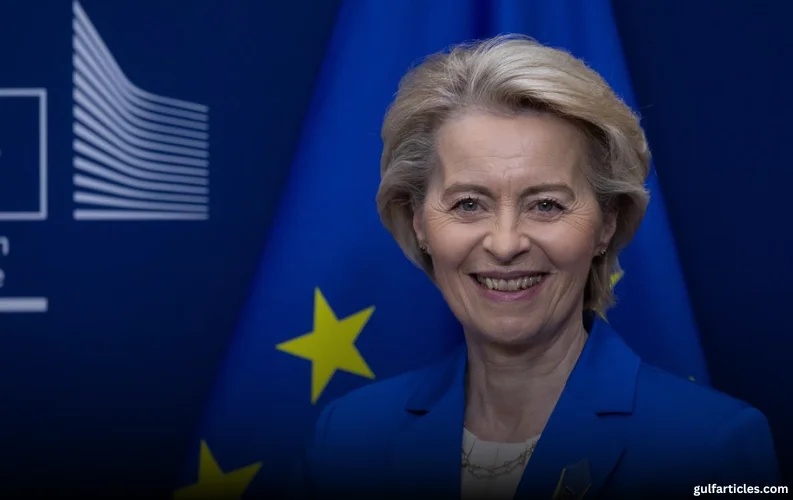In a significant de-escalation of transatlantic trade tensions, the European Union announced on Thursday that it will suspend planned retaliatory tariffs on U.S. goods for 90 days, following U.S. President Donald Trump’s decision to pause sweeping import duties.
The move comes just one day after the 27-member bloc greenlit its first retaliatory measures targeting more than €20 billion worth of U.S. products, including soybeans, motorcycles, and beauty products, in response to American tariffs on steel and aluminium exports. However, Brussels is now opting for dialogue over retaliation—at least for the time being.
“While finalising the adoption of the EU countermeasures that saw strong support from our member states, we will put them on hold for 90 days,” said European Commission President Ursula von der Leyen in a statement issued Thursday morning. “This is to give negotiations a chance.”
A Temporary Truce, Not a Resolution
Trump’s reversal earlier this week paused a controversial universal tariff policy, including 20% duties on EU imports and even steeper ones targeting the auto sector. While the EU welcomed the gesture, it made clear the decision only delays, rather than cancels, its planned retaliation.
“If negotiations are not satisfactory, our countermeasures will kick in,” von der Leyen warned, adding that “all options remain on the table.” She also reiterated the EU’s openness to constructive negotiations and the bloc’s long-standing proposal for a bilateral exemption on tariffs for industrial goods, including automobiles.
Behind-the-Scenes Diplomacy Intensifies
EU Trade Commissioner Maros Sefcovic confirmed ongoing communication with top U.S. officials, including Commerce Secretary Howard Lutnick and U.S. Trade Representative Jamieson Greer. “Constant communication and daily updates keep us moving forward,” Sefcovic wrote on social media.
The EU’s measured response appears designed to preserve the tone of diplomacy while buying time to explore a negotiated solution that avoids a full-blown trade war. Officials say the bloc is still preparing further countermeasures in case the talks fail.
A Fragile Global Trade Environment
President Trump’s abrupt imposition of universal tariffs earlier this year rattled global markets and strained long-standing alliances. Although the 90-day delay signals a willingness to compromise, the underlying tensions remain unresolved.
Brussels had previously raised concerns over Washington’s tariff strategy, which many see as a violation of World Trade Organization (WTO) norms. Trump, for his part, has framed the tariffs as a necessary correction to decades of trade imbalance, a stance that has drawn criticism from European leaders.
Von der Leyen called the tariff pause “an important step towards stabilising the global economy,” and emphasized the EU’s continued commitment to multilateralism and fair trade.
What’s Next?
The temporary suspension allows for a window of opportunity. Negotiators on both sides now face the task of crafting a framework that preserves economic cooperation while addressing mutual concerns around industrial policy, competitiveness, and trade fairness.
The European Commission has said it will use the 90-day period to finalize its preparations for potential escalation, but the hope remains that diplomacy will prevail.
For now, markets and industries on both sides of the Atlantic will be watching closely—because while tariffs have paused, the stakes are higher than ever.




















